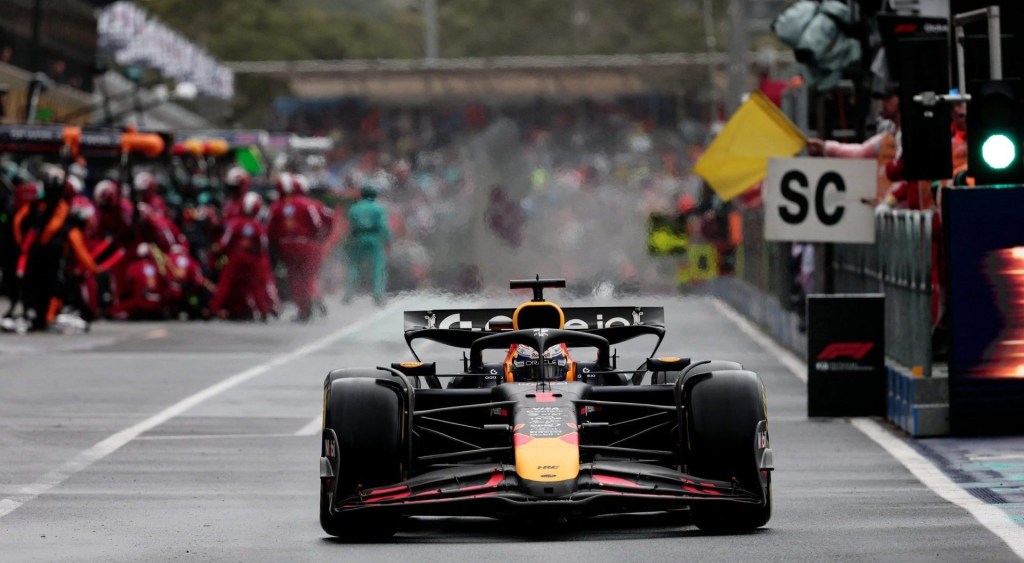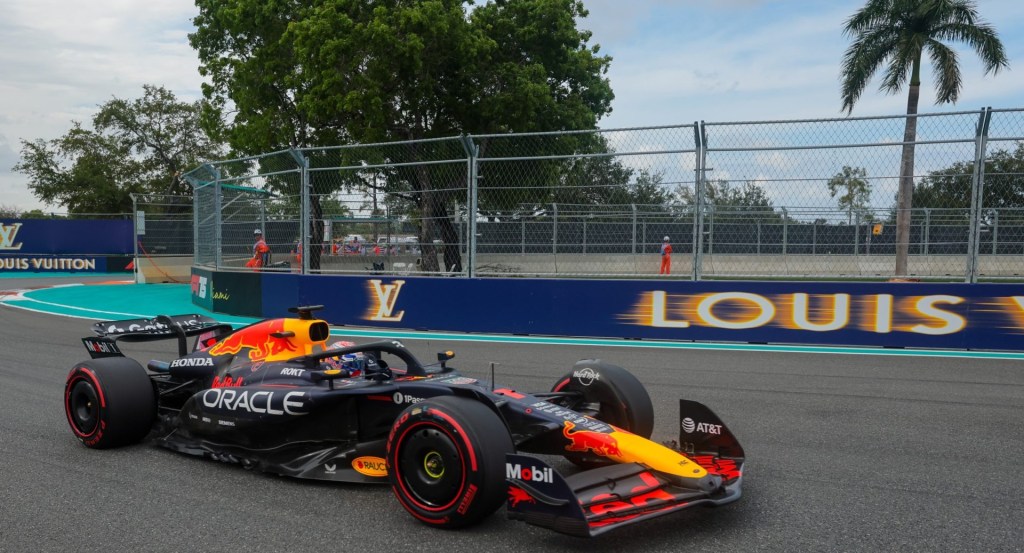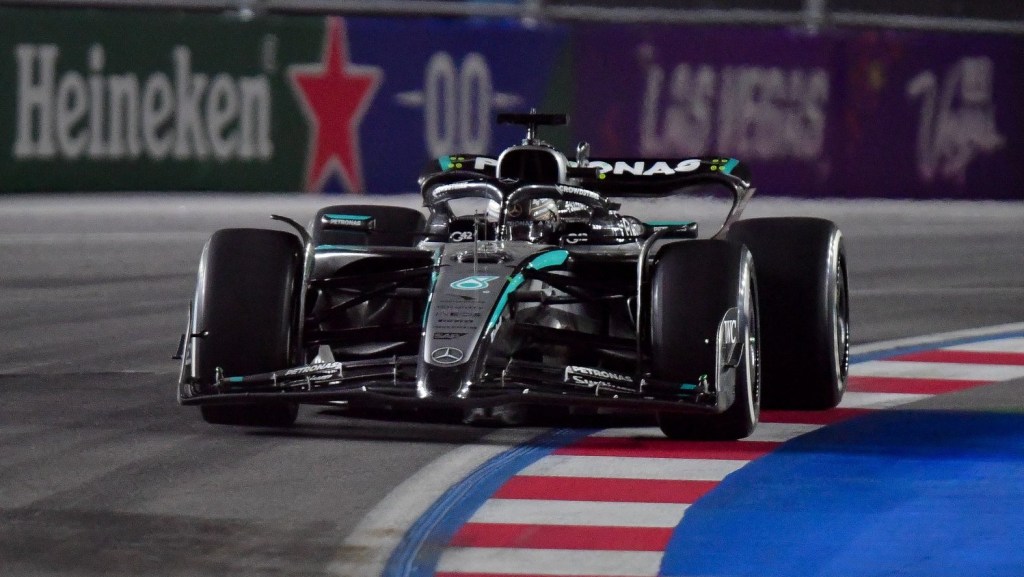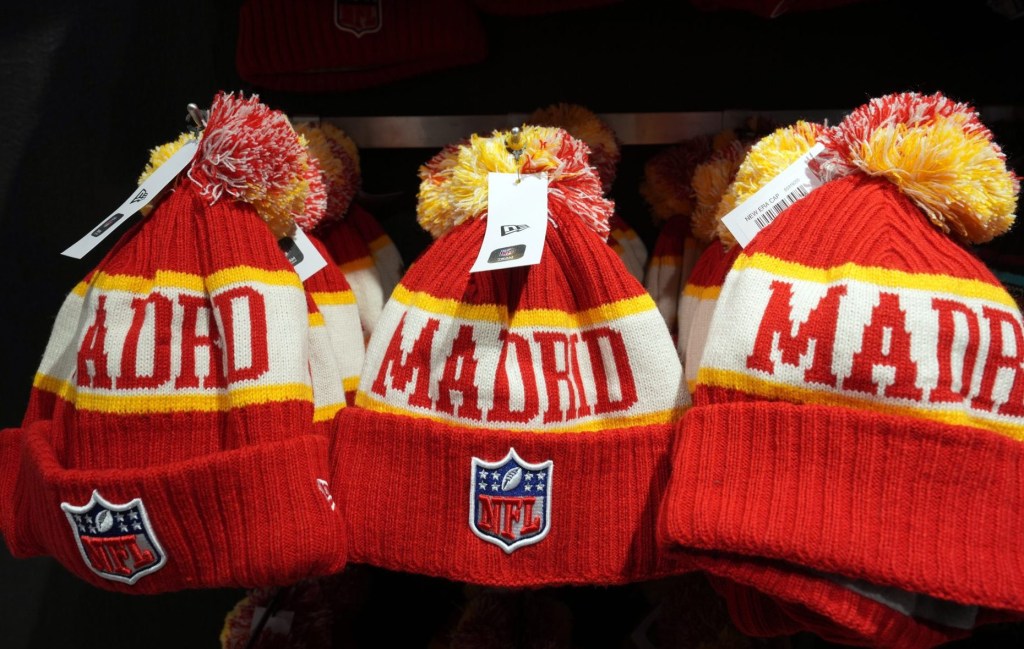On weekends, Front Office Sports brings you one of the week’s best conversations from our daily show, FOS Today. This week we’re highlighting host Owen Poindexter’s interview with Nick Stocker, commercial director at Red Bull Racing and Red Bull Technology. Ahead of the Miami Grand Prix, Poindexter spoke with Stocker about how his company’s Formula One team has dominated the sport in recent years, and the unique opportunities it has created for the brand as it carves a unique path through the sport. To hear the whole conversation, check out the episode here. The following has been edited for clarity and length.
Front Office Sports: Red Bull has been the dominant team in F1 the last few years. What does that mean for you on the commercial side?
Nick Stocker: The more success you have on the track, the more attraction you have from brands around the world wanting to affiliate themselves with you and your success. For the last few years, we’ve grown our revenues from the standpoint of partnerships, but also grown our revenues from new areas within the team. So F1 Academy, licensing, esports, and the like. All in all, it’s been incredibly successful over the last few years from a commercial revenue standpoint.
FOS: In 2021, Max Verstappen won on the final lap of the season in a somewhat controversial fashion. In ’22, you won fairly comfortably. In ’23, utter domination. Has that changed both the amount of interest but also who’s interested?
NS: We’ve seen a whole host of things happening from a new generation of young drivers coming through, with Max and Charles Leclerc and Lando Norris. Netflix obviously has been incredible for us.
And we’ve also seen the advent of new races in new territories. We’ve now got three fantastic and high-profile races in the U.S. We’ve been planning for this behind the scenes for a long time, working with people like our title partner, Oracle, which has helped us be a faster car on the track but also has helped us engage with our fans off the track.
FOS: Are there other geographic regions that have become more prominent for you in recent years, especially as F1 has become a more global phenomenon?
NS: We’re now the number-one team in Australia, in Germany, and in the Netherlands. But the big focus for us has really been in the U.S. The most notable thing there is Oracle. Look at perhaps our biggest competitor over the last five years, Mercedes, for example—they don’t have any big U.S. tech partners.
Moving forward, we’re looking at other territories. Brazil is a huge territory for us. We have the most popular driver in South America with Sergio Pérez. And of course, we want to use that popularity to drive fandom and engagement with fans within the world of Formula One and for us to be that number-one choice of team for them.
We have four Grand Prix [in the Middle East] at the moment and we have some enormous traction from the Red Bull brand as well. So we have a huge halo effect of the brand in the Middle East.
FOS: In terms of your global image, how much of that is tied to Max Verstappen?
NS: It’s a fair question. Max epitomizes everything that Red Bull represents. We bet on him when he was young. He was 17 years old when he first came into the world of Formula One. We’re the only company to ever work with Max in Formula One.
But he really embodies that fighting spirit of the brand. The team is the most important thing. We’ve had Sebastian Vettel as a multiple world champion who’s been here before. When we focus too much on the individual, it takes away from the team. But Max is a critical part. And at some point he’ll retire—when he’s 35, when he’s 40 years old. And of course, we’ll be looking at other drivers as well.
On the youth development part, when we talk about young drivers coming through, there was a moment in the sport where 12 of the starting 20 on the grid had actually come through the Red Bull Junior Academy. So we do run with a lot of young drivers. We invest in talent. We invest in youth.
FOS: So if Max decides to take on other challenges, maybe in the next couple of years, that obviously won’t be good for you, but you’ll be ready for the next thing.
NS: We’re always preparing for the next generation of talent, whether that be the drivers, whether that be engineers or anything else within the business. We’re only young in terms of a lot of the other teams who have 60, 70 years in the sport. So we’re a lot more fluid. We’re a bit more disruptive. And that comes through with the succession plans that we have in place as well. When Christian Horner first came into the sport as team principal, 20 years ago, he was the youngest team principal by quite a long way. I think he was 36, 37 years old, incredibly young to be leading a Formula One team. We’ve invested very much in youth, and that’s what makes us different and separates us from our competitors in the sport.
We’re really setting ourselves up for the future. This is going to be a dynasty within the sport rather than just success over a few years.







![[Subscription Customers Only] Jun 15, 2025; Seattle, Washington, USA; Botafogo owner John Textor inside the stadium before the match during a group stage match of the 2025 FIFA Club World Cup at Lumen Field.](https://frontofficesports.com/wp-content/uploads/2026/02/USATSI_26465842_168416386_lowres-scaled.jpg?quality=100&w=1024)
![[Subscription Customers Only] Jul 13, 2025; East Rutherford, New Jersey, USA; Chelsea FC midfielder Cole Palmer (10) celebrates winning the final of the 2025 FIFA Club World Cup at MetLife Stadium](https://frontofficesports.com/wp-content/uploads/2026/02/USATSI_26636703-scaled-e1770932227605.jpg?quality=100&w=1024)




![[US, Mexico & Canada customers only] Feb 6, 2026; Riyadh, SAUDI ARABIA; Jon Rahm in action during the third round of play at LIV Golf Riyadh at the Riyadh Golf Club.](https://frontofficesports.com/wp-content/uploads/2026/03/USATSI_28173562_168416386_lowres-scaled.jpg?quality=100&w=1024)

![[US, Mexico & Canada customers only] Sep 28, 2025; Bethpage, New York, USA; Team USA's Bryson DeChambeau reacts after hitting his approach on the 15th hole during the singles on the final day of competition for the Ryder Cup at Bethpage Black.](https://frontofficesports.com/wp-content/uploads/2026/03/USATSI_27197957_168416386_lowres-scaled.jpg?quality=100&w=1024)

